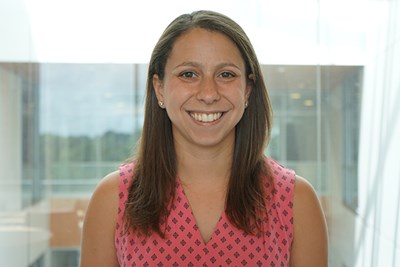Sean Ellis Spent 22 Years in Prison After Boston Police Detective’s Murder
 Image by Tory Wesnofske
Image by Tory Wesnofske
03/03/2022
By Katharine Webster
“I could be you.”
That’s what Sean Ellis, a Boston man who spent nearly 22 years in prison after being wrongfully convicted in the murder of a Boston Police detective, told students during a panel discussion that included UML faculty and the executive director of the New England Innocence Project.
“Wrongful conviction crosses racial lines. It’s more likely to happen to someone who’s Black or brown, but it happens to everyone,” Ellis said.
Ellis, whose case is the subject of “Trial 4,” a Netflix documentary series, was tried three times before he was convicted in the 1993 murder of Boston Police Detective John J. Mulligan, who was shot in his car while on a paid detail outside a Walgreen’s drugstore. Ellis was 19 when he was sentenced to serve life in prison without the possibility of parole.
 Image by Tory Wesnofske
Image by Tory Wesnofske
Years later, Ellis found a new lawyer who helped him file a final round of appeals. Attorney Rosemary Scapicchio unearthed a history of police corruption by Mulligan and the detectives who investigated his death. She also found witness testimony and evidence helpful to Ellis’s defense that prosecutors had never disclosed or followed up on.
Ellis’s murder conviction was thrown out in 2015, but he had to wear an electronic monitor on his ankle until 2018, when the Suffolk County DA’s office decided not to retry him. A charge that he had stolen Mulligan’s gun was finally dismissed last May.
The panel discussion, cosponsored by the School of Criminology and Justice Studies and the Psychology Department, was organized and moderated by Criminal Justice Asst. Teaching Prof. Erica Gagne, who went to school with Ellis in Needham, Massachusetts. Ellis was bused to the Needham schools from Boston through the METCO program.
Despite the police and prosecution case against him, Ellis refused throughout his appeals to plead guilty in exchange for a shorter prison term.
Psychology Assoc. Prof. Miko Wilford, who studies the application of cognitive psychology to the legal system, talked about why people plead guilty to crimes they didn’t commit. There are “an immense number of ways that prosecutors can pressure” both suspects and witnesses, she said, including by threatening suspects with a draconian sentence upon conviction at trial while offering a much lower sentence for a guilty plea.
 Image by Tory Wesnofske
Image by Tory Wesnofske
The panel was moderated by Criminal Justice Asst. Teaching Prof. Erica Gagne, left.
She also talked about her research into the unreliability of witness testimony.
“Memory is extremely fallible,” Wilford said. “Memories are tainted by stereotypes and biases, by subsequent information you receive about the events involved. And they’re easily influenced” by subtle cues because most people want to help police by giving the “right” answer.
She said that psychological researchers who have studied photo arrays and suspect lineups have developed evidence-based recommendations for police and prosecutors so that they do not influence or bias witnesses, but many law enforcement agencies don’t follow those best practices.
Radha Natarajan, executive director of the New England Innocence Project, talked about the pressure police are under to arrest a suspect in any high-profile murder case, and how that often leads to failures and compromises in an investigation.
 Image by Tory Wesnofske
Image by Tory Wesnofske
“There are so many wrongful convictions all over the world,” Natarajan said. “There’s a feeling that when someone is arrested, we are safe, but the criminal legal system is not delivering public safety ... by throwing someone in a cage.”
In Ellis’s case, there was immense pressure to close the case not only from the public, but also from the Boston Police Department “because corruption was involved that they didn’t want anyone looking at too deeply,” Natarajan said. “There were coerced and suggestive eyewitness identifications, flawed forensic evidence and incentivization of witnesses.”
She urged students to vote and to educate themselves about local elections, especially races for district attorney and for mayors or city and town councils with the power to appoint police chiefs and determine budgets and resources.
 Image by Tory Wesnofske
Image by Tory Wesnofske
After his release from prison, Ellis found a job at Community Servings, a Boston nonprofit, where he began by portioning out food and then moved to the front desk, which eased him back into interactions with people. “That helped me repair some of my emotions,” he said, in answer to student questions.
He also began volunteering at the New England Innocence Project, where in late 2020, he co-founded The Exonoree Network to support other people leaving prison after their convictions were overturned.
Honors criminal justice major Zelda Coulibaly, a sophomore, said that Ellis’s thoughtful remarks and answers to students’ questions brought the issues of wrongful conviction and faulty witness testimony to life.
“Hearing his experience was so mind-boggling,” she said. “I’m the same age he was when he was convicted.”




